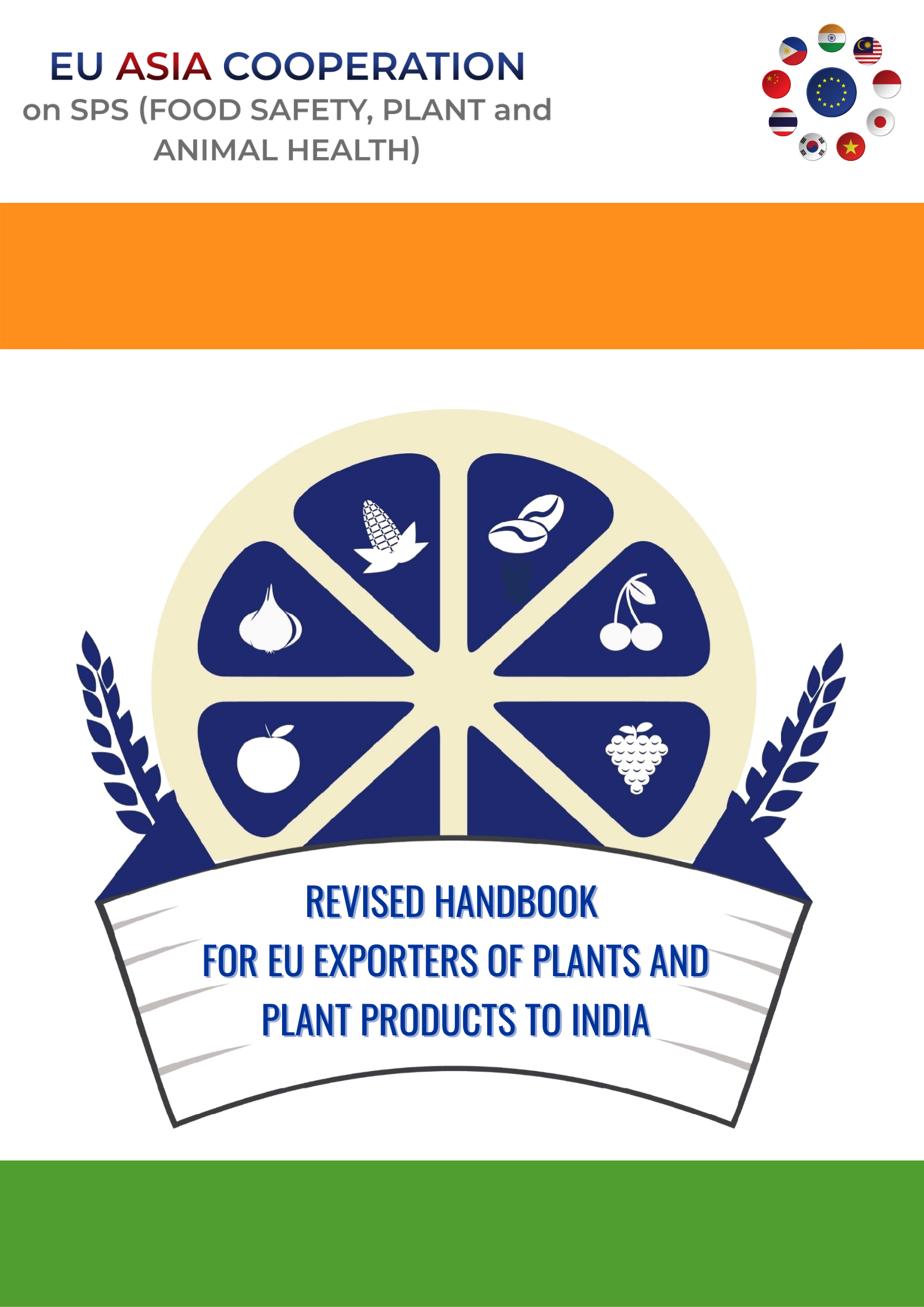 |
|
Revised handbook for EU exporters of plants and plant products to India
This reviewed Handbook is designed to assist exporters and competent authorities in the European Union in successfully accessing the Indian market of plants and plant products. The handbook is also available in the European Commission’s Access2Markets database1.
India’s rules for importing plant and plant products are unique in that they distinguish between products for which import is: i) prohibited (Schedule-IV) ii) restricted and permissible only by authorised institutions with additional declarations special conditions (Schedule-V) iii) permitted with additional declarations and special conditions (Schedule-VI) iv) permissible on the basis of a phytosanitary certificate issued by the exporting country (Schedule-VII)
These rules are laid out in India’s Plant Quarantine Order, where products falling within these categories are specified in Schedules IV through VII. In effect, Indian maintains a ‘positive list’ of plants and plant products that can be imported, which differs from places such as the EU that maintain negative lists, identifying only those products that cannot be imported. As a rule of thumb, you should consider products as being increasingly easier to export – that is, subject to fewer restrictions – as you ascend from Schedule-IV (banned) to Schedule-VII. These rules are laid out in India’s Plant Quarantine Order, where products falling within these categories are specified in Schedules IV through VII. In effect, Indian maintains a ‘positive list’ of plants and plant products that can be imported, which differs from places such as the EU that maintain negative lists, identifying only those products that cannot be imported. As a rule of thumb, you should consider products as being increasingly easier to export – that is, subject to fewer restrictions – as you ascend from Schedule-IV (banned) to Schedule-VII.
View Online
|
| |
|
|
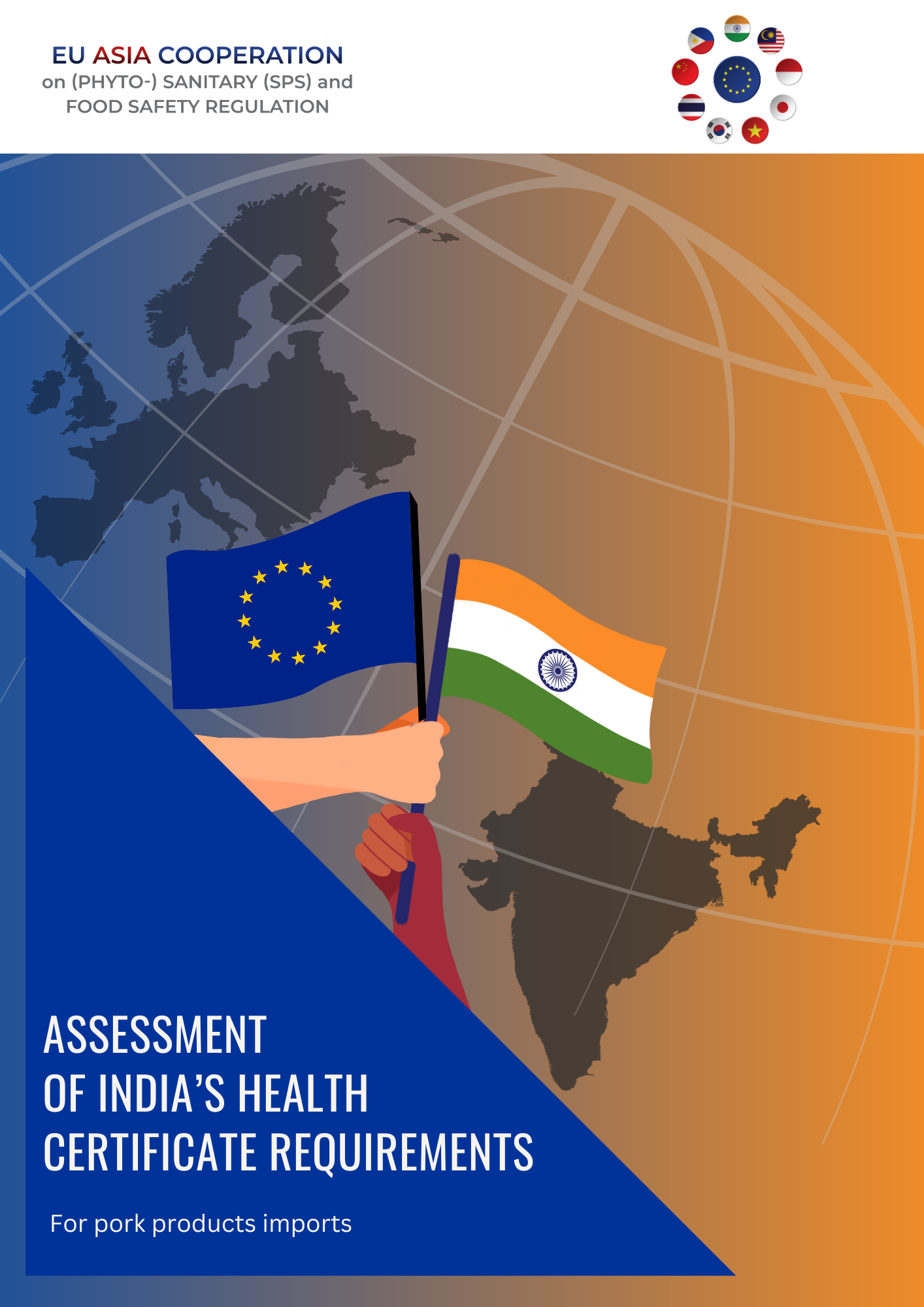 |
|
Assessment of India’s health certificate requirements for pork products imports
Both EU and Indian legislation in the Food Safety sector fundamentally refer to the international principles and standards shared in the framework of the Codex Alimentarius. A gap analysis was performed on the current health certification requirements by the Food Standards and Safety Agency of India (FSSAI) in relation to pork and pork products and this analysis should help DG Trade to inform the European industry and its associations how to overcome the potential new export barriers that may follow from India’s new Health Certificate Requirements.
|
| |
|
|
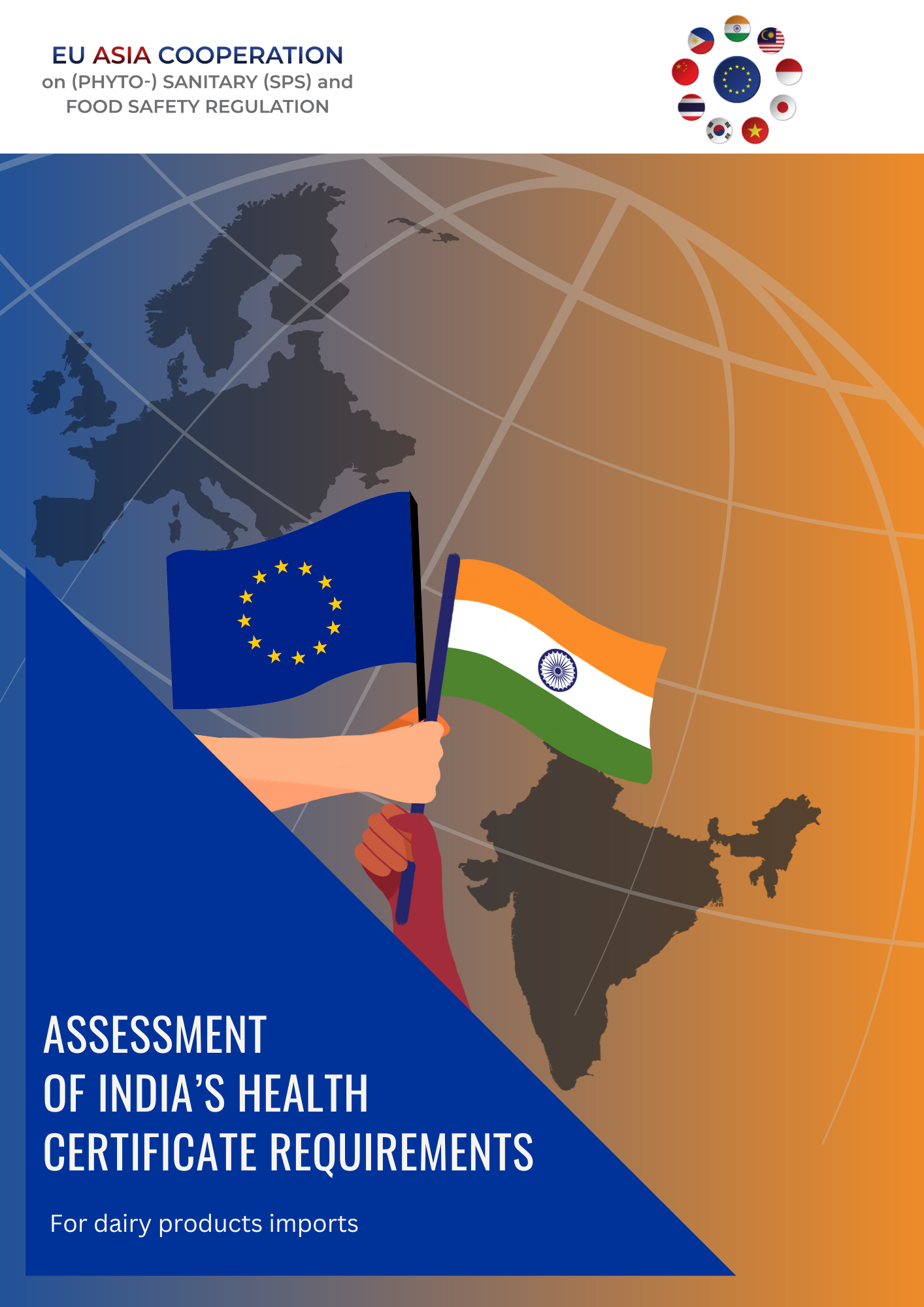 |
|
Assessment of India’s health certificate requirements for dairy products imports
India’s new Health Certificate Requirements for dairy products, as defined by the FSSAI will enter into force on 31st March 2023. Considering these new requirements, a gap analysis is assessed to what extent current relevant European legislation complies with the reviewed health certification requirements by FSSAI. This analysis should help DG Trade to inform the dairy industry and its associations and to drive the discussion how to overcome the potential new export barriers that may follow from India’s new Health Certificate Requirements.
|
| |
|
|
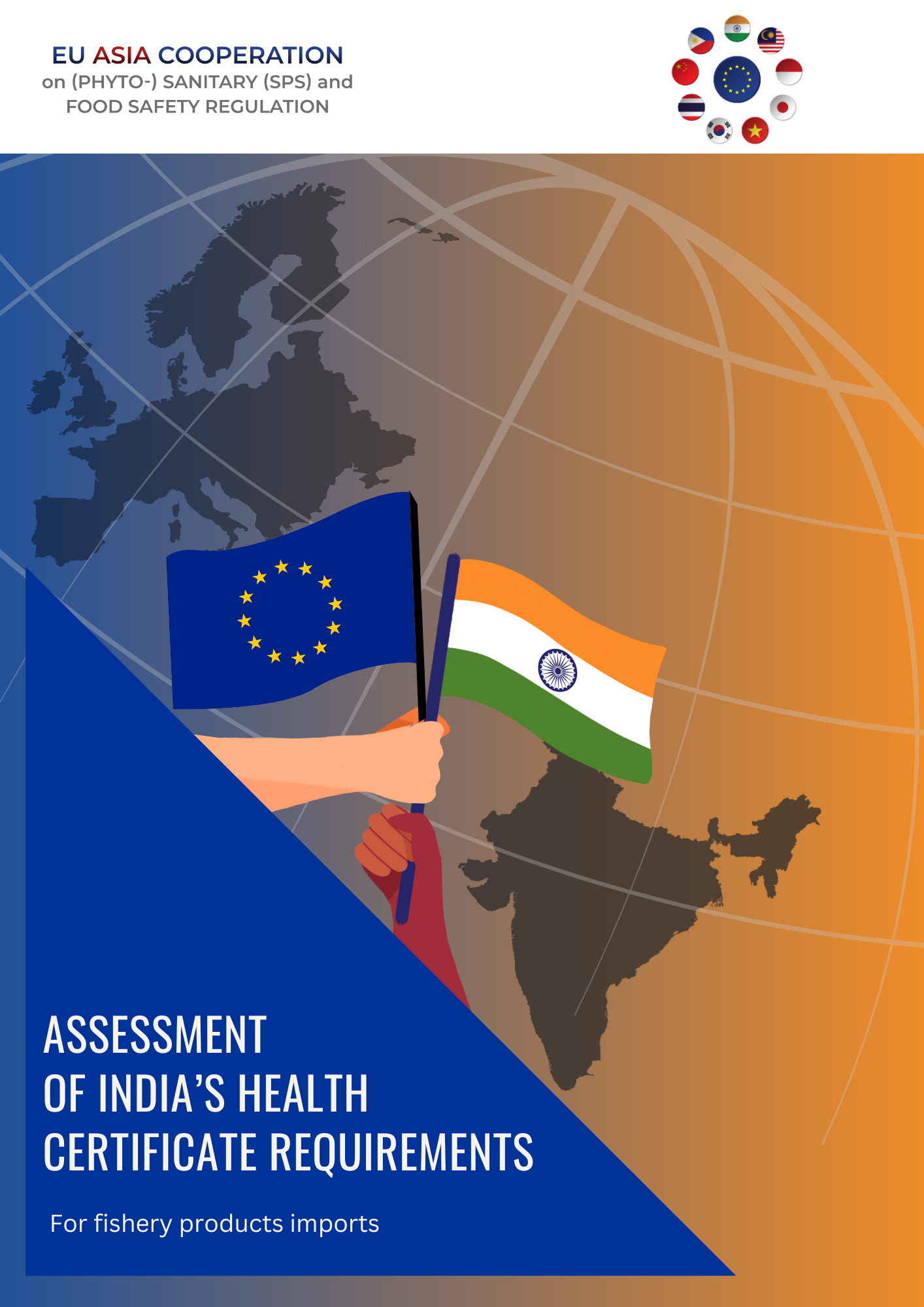 |
|
Assessment of India’s health certificate requirements for fishery products imports
This study is a review of the legal requirements for import to India of processed fishery products for human consumption, excluding live fish for ornamental or other purposes. Further the study includes a comparison between the applicable EU regulations and the Indian requirements. This comparison informs the industry and the competent authorities in the European Union about issues where their attention needs to be focused in order to ensure that export from EU are compliant with the Indian requirements as well as EU requirements.
|
| |
|
|
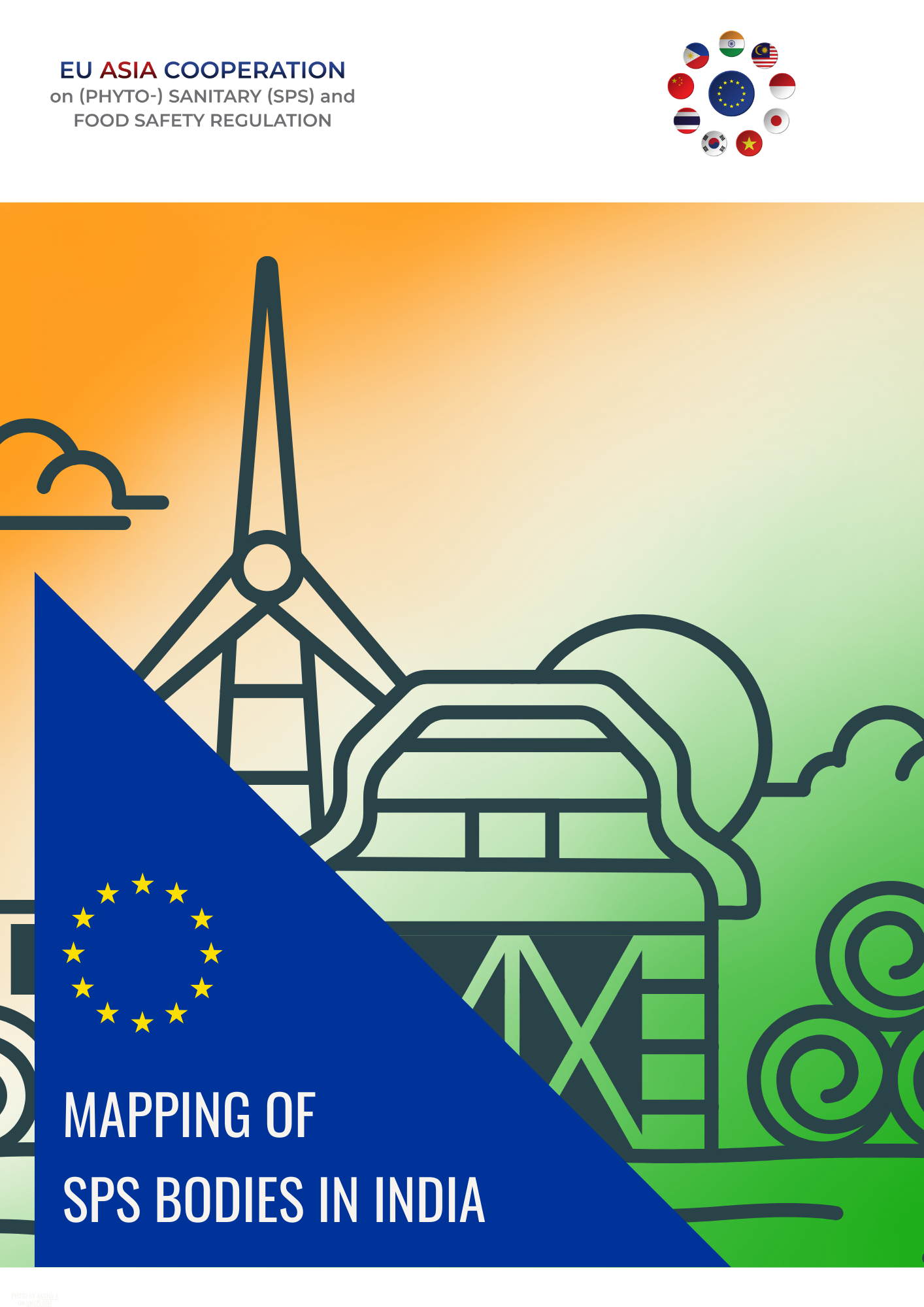 |
|
Mapping of SPS in India
This study provides an overview of the sharing of responsibilities between responsible entities at central level and proposes a system to guide the user of this mapping towards finding the right link to informationaccording to the subject of interest which are food safety, plant health, animal health and animal welfare.
|
| |
|
|
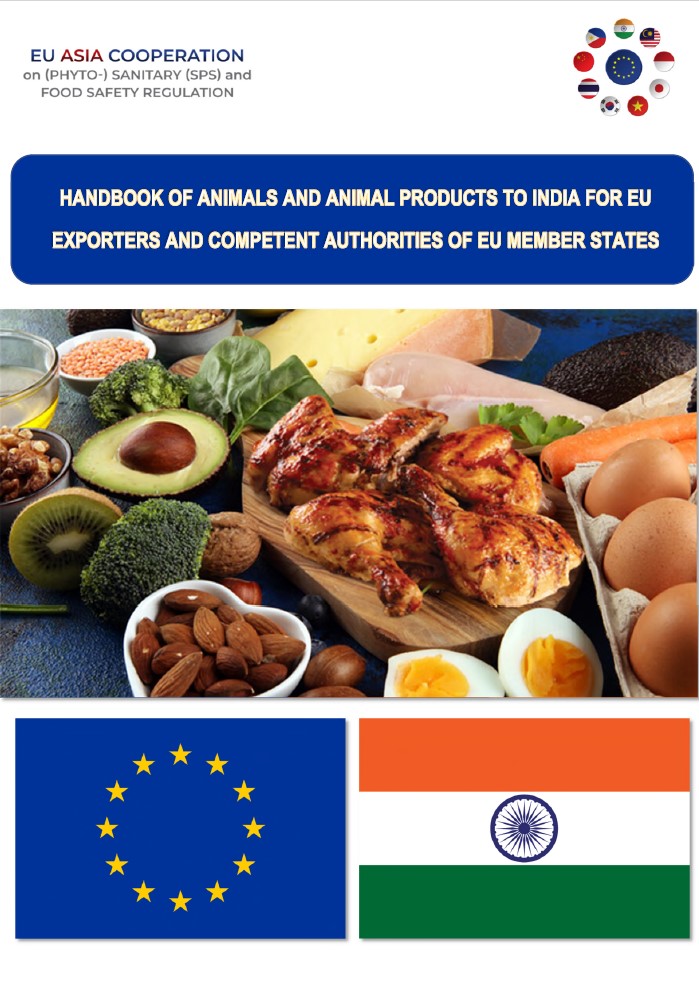 |
|
Handbook of animals and animals products to India for EU xporters and competent authorities of EU Member States
This document includes import requirements for animals and animal products into India. It was prepared to highlight the relevant context and legislation. It also provides a “Step-by-step” method to follow to prepare for applications, detailed standards to be complied with and process flow of import clearance. This handbook provides key documents (Importer Exporter Code, Food import Licence…), certificates to be used by exporters and recommendations on how to use them.
It covers health and safety requirements as well as packaging and labelling rules. It is also providing all details on requirements live animals, meat and meat products, fish and fishery products, Milk and dairy products, animal genetic material, animal feed and pet food, as well as other products of animal origin such as Gelatine.
|
| |
|
|
| |
|
|